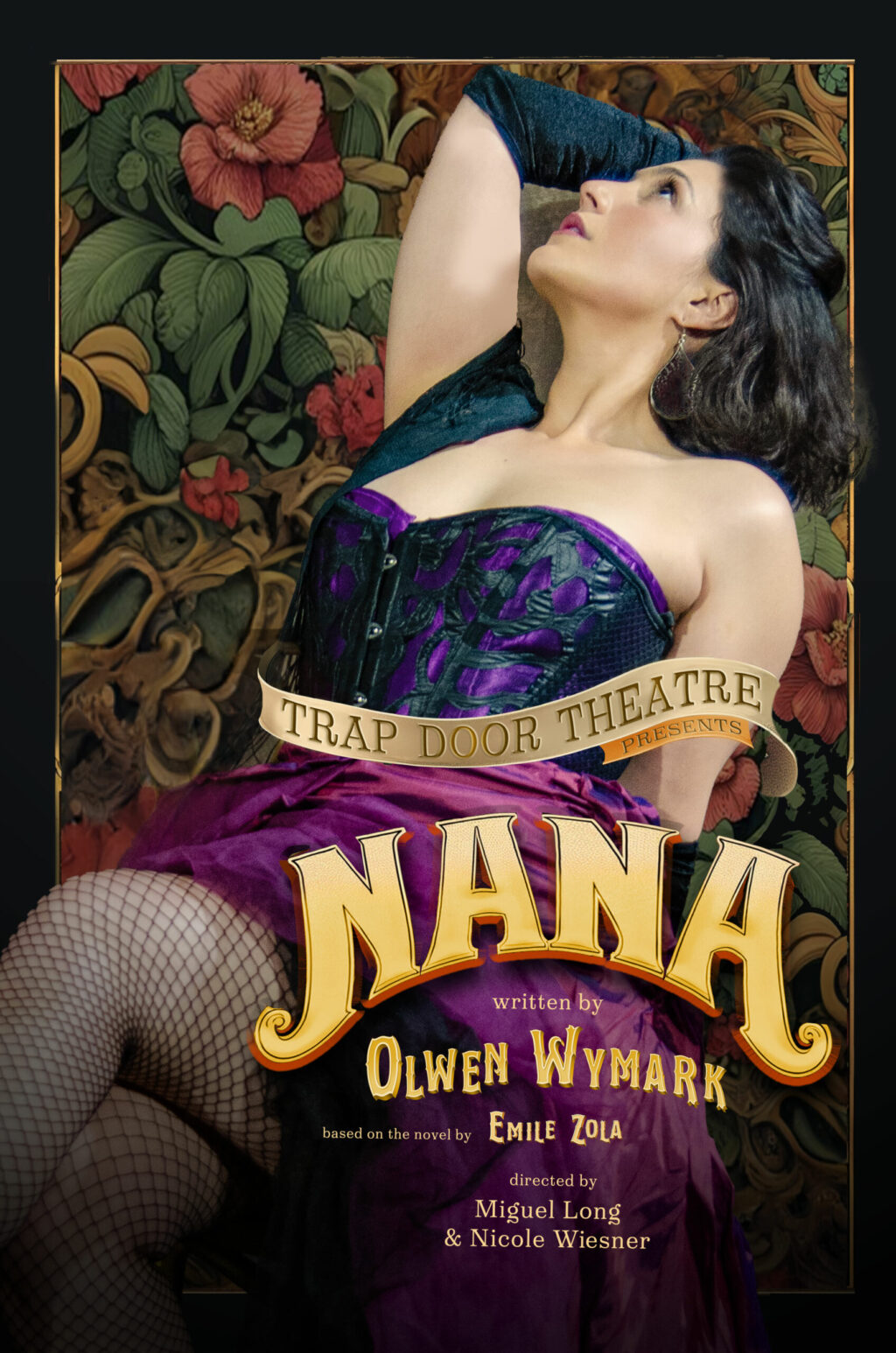
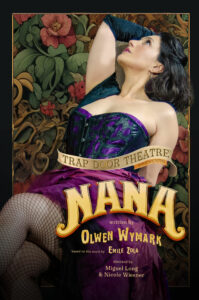 4 stars) You probably wouldn’t be doing very well, emotionally, if whether you got to enjoy the luxuries of high society or ended up homeless depended on whether somebody who had money liked you on a day-to-day basis. If you perceived that you were in competition with the other people in the same boat, you probably wouldn’t be the nicest person, either. Émile Zola’s 1880 novel, Nana, was a sensation when it was published for its examination of how the title character’s psyche is affected by those circumstances. Zola was one of the chief proponents of “Naturalism,” the attempt to use the nascent social sciences to construct fictional characters in a way that would speak truer to reality, and Nana gained lasting fame as an amoral underdog protagonist. The stage adaptation by Olwen Wymark is one that Trap Door Theatre has returned to for the first time in over twenty years, and the production co-directed by Nicole Wiesner and Miguel Long shows that there’s still a lot of excitement and morbid humor to be found in the story.
4 stars) You probably wouldn’t be doing very well, emotionally, if whether you got to enjoy the luxuries of high society or ended up homeless depended on whether somebody who had money liked you on a day-to-day basis. If you perceived that you were in competition with the other people in the same boat, you probably wouldn’t be the nicest person, either. Émile Zola’s 1880 novel, Nana, was a sensation when it was published for its examination of how the title character’s psyche is affected by those circumstances. Zola was one of the chief proponents of “Naturalism,” the attempt to use the nascent social sciences to construct fictional characters in a way that would speak truer to reality, and Nana gained lasting fame as an amoral underdog protagonist. The stage adaptation by Olwen Wymark is one that Trap Door Theatre has returned to for the first time in over twenty years, and the production co-directed by Nicole Wiesner and Miguel Long shows that there’s still a lot of excitement and morbid humor to be found in the story.
Nana (Maryam Abdi) is an actress who has become a celebrity before even making her debut. Part of this is because of an astute marketing campaign by the manager of the theatrical company where she is to play Venus, but part of it is because acting isn’t really her job. The performers at this theatre are more or less explicitly prostitutes for the wealthy and fashionable (the manager, played by David Lovejoy, will even correct you if you refer to his venue as a “theatre” instead of a “brothel”) and Nana is both beautiful and has the selfish, domineering personality that the guilt-ridden and horny secretly crave. Nana claims to be just eighteen, was living on the street before she was discovered, and has a baby who is being raised by an aunt (Tia Pinson) who seems to be financially dependent on her. Her current sugar-daddy (Beck Damron) is only seventeen, and she’s eager to trade up. With her debut the talk of the town, she gets her chance, but being a high-end courtesan has a lot of overhead, and maintaining her status requires her to seek someone new she can drain before she’s done with the last.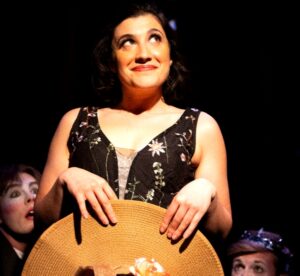
Ruthless though she is, Nana does crave companionship of her own. Fanton (Caleb Lee Jenkins), one of her fellow actors she starts a relationship with, is a violent alcoholic, and though part of her is attracted to that, he cares no more for her than she does for her prey. Another, Satin (Emily Nichelson), convinces her to try with a woman, but it seems she’s not really into it beyond the increased fluidity of who gets to be in control. Being a naturalistic story, Nana is a bit more straightforward in its narrative than the absurdist works that are common at Trap Door, but the company still puts its distinctive spin on the production. Abdi fully inhabits a complex albeit ruthlessly determined character, but there are times, often when Nana is having particularly difficult interactions with other people, when a different member of the ensemble steps in to play her and Abdi speaks from outside the scene. Nana’s not really special, after all, and when her rivals probe for weaknesses with their gossip, they see the same vulnerabilities in themselves. The closest thing Nana has to a friend is her maid and gatekeeper, Zoe (Emily Lotspeich), who offers Nana a comforting shoulder and speaks frankly to her when needed because that is what she gets paid for. Good customer service includes the appearance of an emotional connection, and not just in Nana’s line of work.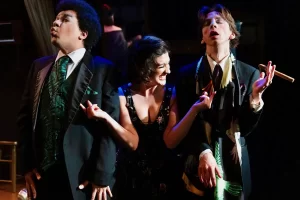
Another thing to know about the world of the Second French Empire: the worst faux pas you can make is to mention that Prussia is coming. Throughout Wiesner and Long’s production, there’s an undercurrent of franticness and unrelieved tension in the characters that isn’t entirely about their personal situations. Not that they particularly expect to lose the war, but they seem aware this moment and its opportunities won’t last. The designers, including Merje Veski with the set, Rachel Sypniewski on costumes, Richard Norwood on lighting, Zsófia Östvös on make up, and Igor Shashkin with hair and wigs, do a lot with a little, but it’s fitting for a show that is so much about people climbing up from nowhere during their brief window that everything feels ephemeral. The cast of ten moves very fast throughout a nearly two-hour run time, constantly dazzling us with dancing, fighting, and physical comedy. Nana lives quickly, but from her baby’s age, it seems not much time passes between her rise and the story’s end. Zola’s theory that people are shaped by their environments and circumstances isn’t exactly revolutionary today, and the justice he delivers is, at most, poetic. But the theme of someone doing whatever it takes to claw out a little bit of comfort in a world that just wants to chew them up and cast them aside remains relevant, and Nana really does provide her audiences with a night of excitement.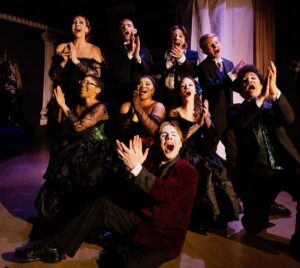
Nana will continue at Trap Door Theatre, 1655 W Cortland Ave, Chicago, thru May 19, at the following times:
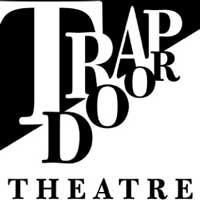 Thursdays: 8:00 pm
Thursdays: 8:00 pm
Fridays: 8:00 pm
Saturdays: 8:00 pm
Running time is one hour and fifty minutes with no intermission.
Tickets are $30 with 2 for 1 admission on Thursdays. Special group rates are available. Visit Trap Door Theatre or call 773-384-0494 or email boxofficetrapdoor@gmail.com
To see what others are saying, go to Theatre in Chicago and click “Nana.


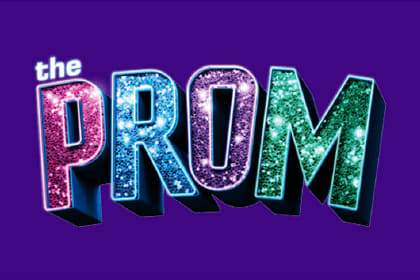
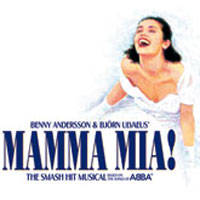


More Stories
“Mamma Mia!” Reviewed by Paul Lisnek
“The Simon & Garfunkel Story”
“Women Beware Women”